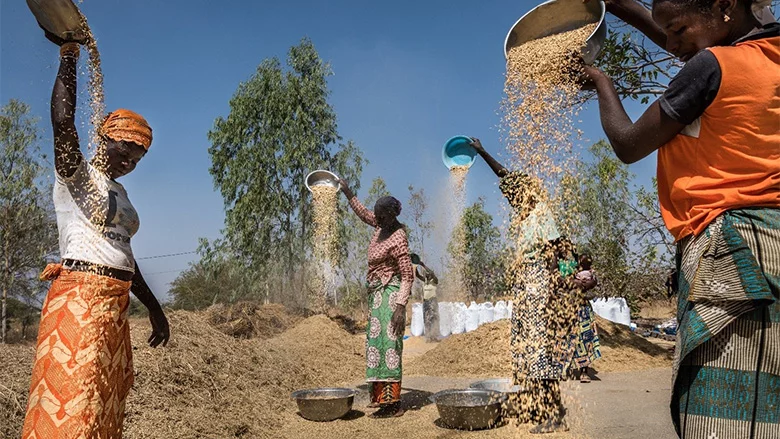Facing a security challenge since 2016, Burkina Faso is a member of the West African Economic and Monetary Union (WAEMU). This crisis is compounded by a humanitarian and political challenge with two coups in 2022. The coup of September 30, 2022, brought Captain Ibrahim Traoré to power. This political instability has not been without consequences for the country’s economic prospects.
Positive Economic Outlook
Despite this situation, the African Development Bank (AfDB) has announced encouraging economic prospects, with projected growth of 4.1% in 2024 and 4.3% in 2025, driven by increased extractive and agricultural production. This optimism is partially shared by the World Bank, which forecasts a growth rate stabilizing at its new potential of around 4.0% (or 1.5% per capita) for the 2025-2026 period. To confirm this commitment to agriculture, Prime Minister Jean Emmanuel Ouédraogo, in his general policy speech, affirmed that: “In the agro-sylvo-pastoral sector, I will pay particular attention to consolidating the gains of the agro-pastoral and fisheries offensive, which has already led to an 18% increase in agricultural production between 2023 and 2024.”
Cautious Optimism
Despite this optimism, the economic situation appears challenging. Indeed, the projected state budget expenditures for the 2025 fiscal year are estimated at 3612.3 billion CFA francs, compared to 3706.1 billion CFA francs in 2024, a decrease of 2.53%, equivalent to a reduction of 93.8 billion CFA francs in absolute terms. The budget deficit amounts to 462.5 billion CFA francs, down from 675.5 billion CFA francs the previous year.
Additionally, the announced withdrawal of Burkina Faso, Mali, and Niger from ECOWAS may have negative effects on trade with non-WAEMU ECOWAS member states.
However, according to budgetary forecasts, 27% of state resources will be allocated to defence and security, while 40% will be dedicated to education and health.
2025: A Stable Year
If we rely on current trends, it can be said with a high degree of certainty that 2025 will be a stable year for the country’s economy. According to local experts, inflation is expected to decrease by 2% during this year. The Network of Civil Society Organizations working in the field of finance (ROSC-FP) presented its citizen analysis of the 2025 state budget proposal. For them, despite the challenging security situation, the current authorities are making efforts to comply with the convergence criteria of WAEMU. “The 2025 state budget is set at 3129.8 billion CFA francs in revenue and 3593.9 billion CFA francs in expenditure, with a budget deficit (financing need) of 464.1 billion CFA francs. This financing gap of the 2025 budget, representing 13% of the 2025 budget expenditures, will be covered by state treasury resources and reasonably priced debt,” stated ROSC-FP spokesperson Hermann Doanio.
Nevertheless, the Burkinabè government remains determined to continue its investment efforts, as Prime Minister Ouédraogo mentioned before the members of the Transitional Legislative Assembly (ALT), citing a list of commitments to revive the industrial sector: “The industrial fabric development dynamic initiated in 2023 will be maintained and strengthened through the effective revival of industrial units such as MINOFA and SN-SOSUCO in Banfora, BRAFASO in the Commune of Komsilga, the continuation of works by the company TEXFORCES, and the commencement of construction of newly created industries such as FASO RAILS.”

